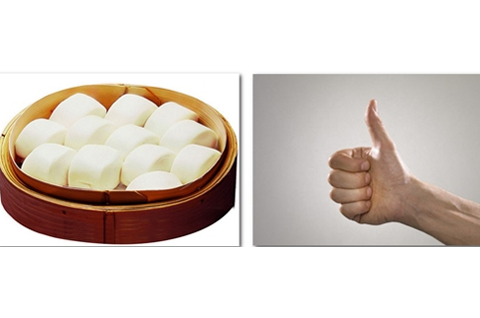
Do you watch The Bachelor or Bachelorette?
In each show the main hero or heroine (who we label as the Bachelor or Bachelorette) hands out a series of roses to contestants who he or she favors and a final rose to let the final contestant who he or she picks to be his or her wife (or just decides to date them). Personally, I am totally addicted to these shows and watch them constantly! And I’m not afraid to admit it.
In Chinese there is a specific word for this person who receives a rose, or is considered to be popular, in high demand. If a guy or girl is considered the most popular or favored on the show, we say 她 (tā) or 他是个香饽饽 (tTā shì gè xiāng bōbo). He or she is the 香饽饽 (xiāng bōbo).
香饽饽 (xiāng bōbo) is a common and useful expression in daily life. It’s used to describe a person or things that are considered favored or popular.
Here we use 香饽饽 (xiāng bōbo) specifically to describe “人 (rén) people”—somebody, or a person.
Who has been considered to be most popular on the Bachelor or Bachelorette?
I thought Ben was a 香饽饽 (xiāng bōbo), for sure. He got kicked off of Kaitlyn’s season but came back to be the next bachelor because he was so popular with all of the female viewers. He was always kind, calm and gentlemanly, how could he not be considered 香饽饽 (xiāng bōbo)?

In Kaitlyn’s Season Shawn turned out to be the 香饽饽 (xiāng bōbo). I was never that into Shawn but it looks like he has proven me wrong. He and Kaitlyn are still together and as a couple are 香饽饽 (xiāng bōbo) too.

And of Sean’s season Catherine was 香饽饽 (xiāng bōbo) but Emily came in a close second to a lot of viewers.

Let’s break the word 香饽饽 (xiāng bōbo) down to understand its full meaning:
香饽饽 (xiāng bōbo): delicious cakes, popular person, something that is in high demand.
This word is originally referred to a specific type of food, which was cooked, wheaten food.
In English we use similar sweet foods as words of endearment. Think of how we use:
1. “Sweetiepie!”
2. “Honey!”
3. “Awww, Cupcake,” or
4. “Hey Honeybun,” etc.,
When we address our loved ones. Now, in 21st century China it indicates something or someone who is favored or welcomed. In Chinese this term has less personal meaning and refers more to people, who may be strangers, but are viewed by many as popular and favored.
You can find this word on the internet describing celebrities, fashionistas, or used in daily life to describe people who are considered to be popular.
Usage and examples:
Qíngrénjiē de shíhòu, qiǎokèlì hé méiguīhuā dōu shì xiāng bōbo.
情人节 的 时候, 巧克力 和 玫瑰花 都 是 香 饽饽。
Chocolates and roses are the most popular gifts on Valentine’s Day!
In this case, we can also use 香饽饽 (xiāng bōbo) to describe “巧克力 (qiǎo ke lì) chocolate” and “玫瑰花 (méiguīhuā) rose”—something.
Dǒng duō zhǒng yǔyán de rén zài zhíchǎng shàng shì xiāng bōbo.
懂 多 种 语言 的 人 在 职场 上 是 香 饽饽。
People who can speak multilevel languages are very popular in the work field.
When you’re watching this season of the Bachelorette who is 香饽饽 (xiāng bōbo) to you? Let us know in the comments below!
Source from echineselearning